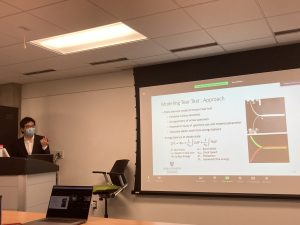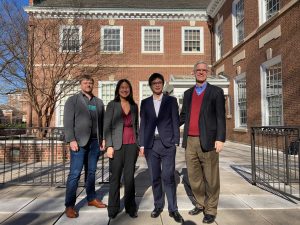Congratulations to Dr. Zheliang Wang on the successful of his dissertation.
The Toughness and Residual Stresses of Polymers Produced by Fused Filament Fabrication
Fused filament fabrication (FFF), also known as fused deposition modeling (FDM), is one of the most widely‐used additive manufacturing methods. In FFF, the feedstock material, usually a glassy polymer filament, is fed into the nozzle, heated well above the glass transition temperature, and then squeezed and deposited to form layer‐by‐layer 3D structures. FFF possesses the advantage of low cost, user‐friendliness, ease of customization, and the ability to fabricate complex structures. This technology has gained great popularity in prototyping, but its drawbacks, including poor mechanical strength and dimensional accuracy, have limited its broader applications in batch production. It has been known that the mechanical strength of the printed part is greatly affected by the toughness of welds, and the dimensional accuracy is mainly determined by the non‐uniform thermal expansion and the accompanying residual stresses. This work aims to develop a constitutive model for glassy polymers, numerically investigating the trouser‐tear test used to measure the weld toughness, and establishing a novel method to measure the evolution of the residual stresses in FFF.







